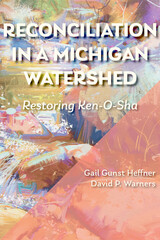
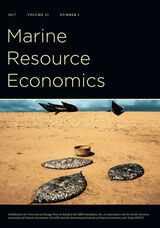

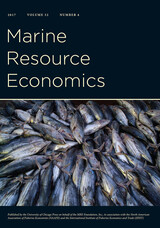

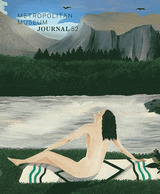




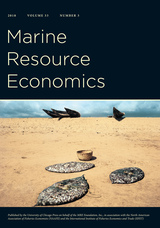



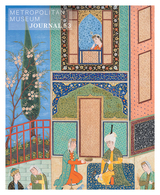







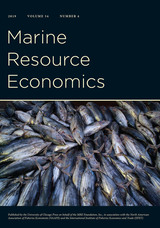

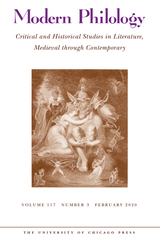

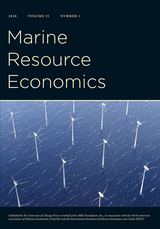



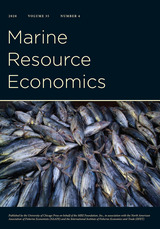
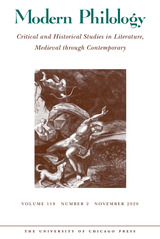
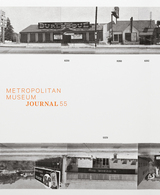


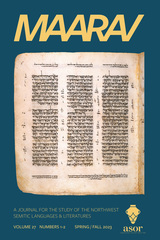







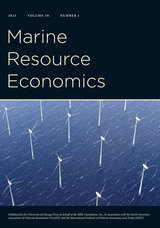
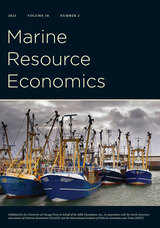
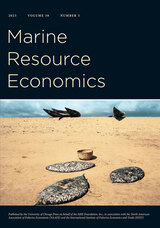
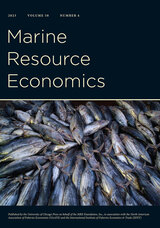
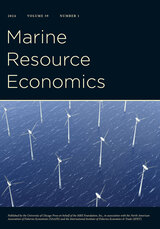

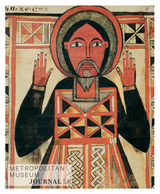
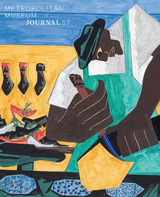
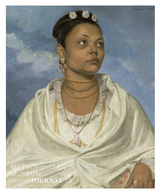
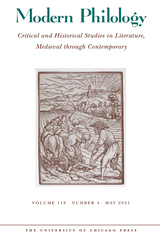

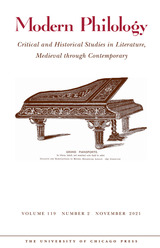
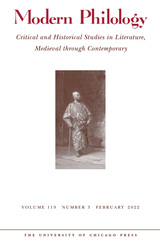
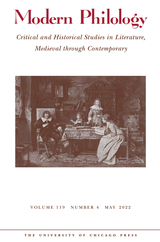
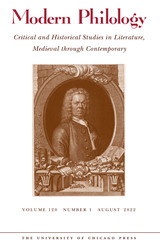
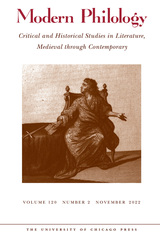
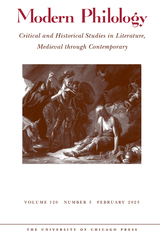
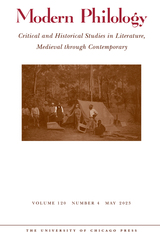
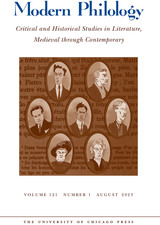
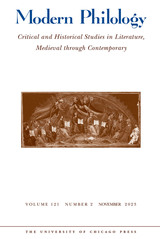
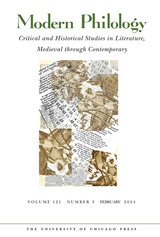

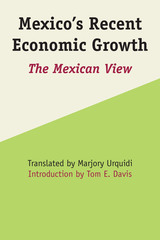
The Mexican economy underwent a process of growth and transformation in the twentieth century, which was confirmed by the indexes and figures that economists use to chart the rate of growth, even allowing for possible inaccuracies in these figures.
This volume of six essays makes readily available to English-speaking readers a selection of significant contributions by outstanding Mexican economists dealing with the mid-twentieth-century growth of the Mexican economy.
Enrique Pérez López provides an overview of the development of the gross national product in the economy and the structural changes that were imperative if basic social goals were to be implemented and the optimal adjustments to changing world conditions effected. Ernesto Fernández Hurtado discusses the process of accommodation and cooperation between the public and the private sectors that has contributed significantly to economic growth, stressing particularly the role of agriculture. Mario Ramón Beteta describes central bank policy and the functioning of the Central Bank, showing how control over credit and the banking system assures stability and accelerating growth through its credit rationing.
Alfredo Navarrete R. traces the sources of domestic savings that have provided 90 percent of the capital employed in the economy since the Revolution, and Ifigenia M. de Navarrete demonstrates that rapid economic growth has not resulted in a more equitable distribution of income. Victor Urquidi stresses the balanced growth, achieved by allocating public capital formation to basic infrastructure, that has helped develop agriculture as well as industry, and indicates the nature of the structural change that must occur if the economy is to expand rapidly.
In his introduction Tom E. Davis compares growth in Mexico with developments during the same period in Chile and Argentina.
The country reached its midcentury standard of living after fifty years of drastic social and political changes under a constitution that altered the system and the concept of private property and the role of the state. These new concepts brought about changes in the structure of production and social relationships, together with a rise to new cultural, technical, and moral levels. These changes, in turn, placed Mexico in a new position with new problems. A question that must be answered is whether the economic goals of the future require a reappraisal of social relationships and of the ways of administering and utilizing the country’s resources and potential productivity.
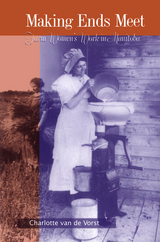
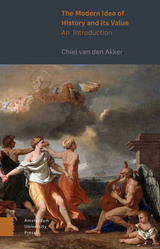

The emerging field of multispecies studies, grounded in passionate immersion in the lives of fungi, microorganisms, animals, plants, and others, is opening up novel ways of engaging with worlds around us. This issue brings together some of the leading scholars in this field to explore what is at stake—epistemologically, politically, ethically—for different forms of life caught up in diverse relationships of knowing and living together. The collection takes us into the worlds of sheep and shepherds; of stones, worms, salmon, and forest-devouring beetles; of viruses and their elephants; of seals, crows, and lava flows in Hawaii; and finally of frogs-as-pregnancy-tests and possible agents of pathogenic fungal spread. Each of the contributors explores what difference curious and careful attention to others might make in our efforts to inhabit and coconstitute flourishing worlds in these difficult times.
This issue is freely available online at environmentalhumanities.org; a print version is available for purchase.
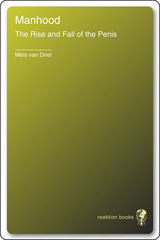


In The Making of the Supply Chain, Remko van Hoek explores the stories of five very different supply chain pioneers—George Stephenson, Henry Ford, George Lauer, Elizabeth Dole, and J. B. Hunt—to demonstrate how innovations in supply chain management have changed the world by reshaping how we obtain our products and services.
Van Hoek reflects on these leaders’ seminal achievements in supply chain management, relates their breakthroughs to current best practices and opportunities for the future, and chronicles how other leaders have converted lessons from these Hall of Famers into new breakthroughs.
Informed by his work with the Council of Supply Chain Management Professionals (CSCMP) Supply Chain Hall of Fame,Van Hoek presents these inspiring stories in an engaging and highly accessible style.
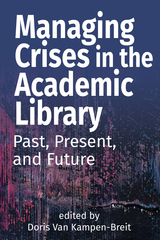
In 29 chapters from authors in all institution types and sizes, Managing Crises in the Academic Library can help library workers learn from the crises of the past and prepare for the next unexpected event. Chapters cover lessons from the COVID-19 pandemic, perpetual budget uncertainty, dealing with downsizing, merging departments, mold mitigation, and mental health issues, but also offer strategies applicable during any crisis, including:
- Responsive decision-making in academic library collections
- Managing stakeholder expectations
- Effective communication strategies
- Continuity of operations planning
- Utilizing library storage facilities
- Documentation and cross-training
- Mediating student technology needs
- Setting boundaries
Libraries and library workers are deeply sustaining lifelines for many students and faculty. Managing Crises in the Academic Library collects stories that demonstrate the tenacity, creativity, and ingenuity of academic library workers as they maintain this vital community lifeline and offers actionable ideas and approaches for planning for and sustaining the resources, services, and people in the library during difficult times.
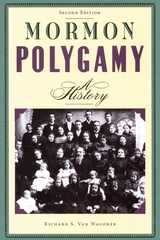
What emerges is a portrait that neither discounts nor exaggerates the historical evidence. He presents polygamy in context, neither condemning nor defending, while relevant contemporary accounts are treated sympathetically but interpreted critically. No period of Mormon history is emphasized over another. The result is a systematic view that is unavailable in studies of isolated periods or in the repetitions of folklore that only disguise the reality of what polygamy was.
Scattered throughout the western United States today are an estimated 30,000 fundamentalist Mormons who still live “the principle.” They, too, are a part of Joseph Smith’s legacy and are included in this study.
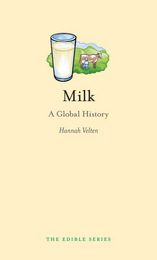
Milk—“It does a body good.” It’s difficult to deny the truth of the American Dairy Council’s former advertising campaign. From birth milk is the sustaining and essential food of all mammals. It is the first food we ever taste. And yet, despite that natural relationship to milk, the majority of the world’s population cannot digest it in the form most often available to adults—cow’s milk.
In Milk, Hannah Velten explores the myths and misconceptions surrounding the ubiquitous drink. Modern milk processing produces a safe, clean beverage that is very different from pure milk straight from the cow. Nonetheless, there are many advocates of raw milk that long for the days before pasteurization, homogenization, and standardization. Yet milk in the time before these scientific processes was even less natural than today—known then as the white poison, it was bacteria-ridden, mixed with additives to make it look like milk after the cream was removed, filled with chemicals to promote its shelf life, and extremely watered down.
Now that milk is considered a staple of a healthy and balanced diet, Velten investigates how and why conceptions of milk have shifted in the public consciousness, from the science of nutrition to the dairy industry’s advertising campaigns. This highly illustrated exploration of one of the most fundamental foods and drinks also includes recipes for ice-cream, milkshakes, and even milk paint. Milk will surprise and entertain in equal measure.
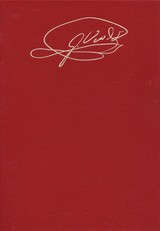
Published in three volumes, this critical edition of Macbeth is the only one based entirely on autograph sources. Containing the later version as the principal score, it is the first edition to consult the composer's manuscripts of the revised pieces, preserved at the Bibliothèque Nationale in Paris. An appendix contains the earlier movements, and David Lawton provides a wide-ranging introduction to the opera's complex history. This critical edition of Macbeth includes here for the first time Verdi's preferred text—the version he set to music—as well as his own stage directions and thus offers the most vivid and dramatic reading to date.
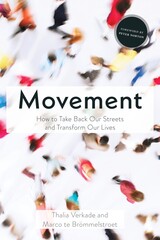
—Bill McKibben, author of The Flag, The Cross, and the Station Wagon
Almost everywhere in the world, streets are designed for travel at the highest speed, giving precedence to the chunkiest vehicles. We take for granted that the streets outside of our homes are designed only for movement from one point to another. But what happens if we radically rethink how we use these public spaces? Could we change our lives for the better?
In Movement: How to Take Back Our Streets and Transform Our Lives, journalist Thalia Verkade and mobility expert (“the cycling professor”) Marco te Brömmelstroet take a three-year shared journey of discovery into the possibilities of our streets. They investigate and question the choices and mechanisms underpinning how these public spaces are designed and look at how they could be different. Verkade and te Brömmelstroet draw inspiration from the Netherlands and look at what other countries are doing, and could do, to diversify how they use their streets and make them safer.
During the pandemic, decision-makers in cities around the world were confronted with the questions of who our streets belong to, how we want to use them, and who gets to decide. Making our communities safer, cleaner, and greener starts with asking these fundamental questions. To truly transform mobility, we need to look far beyond the technical aspects and put people at the center of urban design. Movement will change the way that you view our streets.


This is the key volume in the New York Metropolitan Region Study. It is a synthesis and interpretation of the seven specialized books that have already been published and the one that is still awaiting publication. Here, at last, with a depth of perspective made possible by the author's familiarity with the unpublished as well as the published findings of the other participants in the Study, is the whole picture--New York's busy and varied economy as it is now, as it has been, and as it is likely to be twenty-five years from now.
Beginning with the visible present, Mr. Vernon with swift strokes lays bare the essentials of the economic history of the New York Region. He shows how its industries grew out of one another, the part played by labor, the early crucial role of the port, and the later crucial role of "clustering" that enables firms to share common facilities. He discusses the Region's advantages and disadvantages for different kinds of business and industry, the interrelation between the jobs in the Region and the people who live in it. He traces the movement of jobs geographically in and out of the Region as a whole, and also outward within the Region, relating this outward movement to such developments as the thinning-out of population in mid-city tenements and the continuing boom in suburban split-levels. He analyzes the problems besetting the multitude of local governments in the Region, and the crisis of commuting and rapid transit services. Finally he projects the metropolis of 1985, picturing it as all the infinitely complex forces of its history to date indicate that it will be, if these forces are not altered in their future operation by governmental actions of unprecedented magnitude.
In this book there is clearly presented the information that can enable the metropolitan dwellers themselves to communicate more effectively with the experts whose business is objective evaluation of urban problems. Once that communication is established, Mr. Vernon says, "We shall have moved a giant step closer to the objective of a more tolerable metropolitan environment."
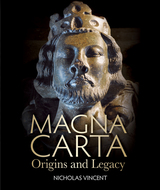
This book tells the story of the birth and development of Magna Carta from its origins to the modern day. It also reproduces and describes, for the very first time, every surviving copy of the Great Charter, as well as related charters of the period, including various new discoveries. It addresses the previously unanswered question of how the charter was published and disseminated to the shires of England and includes a chapter on the charter's scribes and sealing, supplying a truly unique insight into both the creation and afterlife of the most fundamental legal document in British history.
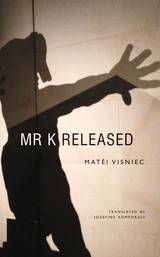
One day, Mr. K finds himself unexpectedly released. Unable to comprehend his sudden liberation, he becomes traumatized by the realities of freedom—more so than the familiar trauma of captivity or imprisonment. In the hope of obtaining some clarification, Mr. K keeps waiting for an appointment with the prison governor, however, their meeting is constantly being delayed. During this endless process of waiting, Mr. K gets caught up in a clinical exploration of his physical surroundings. He does not have the courage or indeed inclination to leave, but can move unrestricted within the prison compound, charting endless series of absurd circles in which readers might paradoxically recognize themselves.
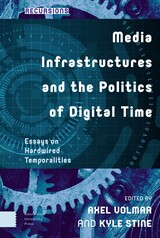

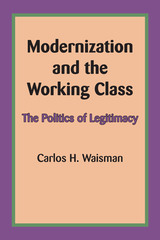
This is a fascinating inquiry into the factors that determine the acceptance or rejection of capitalism by the industrial working class. Combining classical social theory, historical evidence, and survey data, Waisman explores the relationship between the degree of modernization and the legitimacy of the capitalist social order.
Propositions about the interaction between established elites and emerging working classes are illustrated with three typical cases: Disraelian Britain, Bismarckian Germany, and Peronist Argentina. From the contrasting theories of Marx and Bakunin, the author derives hypotheses concerning the position of the working class in the economy and the consequences this has for legitimacy. He finds that countries at middle levels of industrial development—mostly latecomers to industrialization in Southern Europe and advanced areas of Latin America—have the greatest difficulty in establishing capitalism as a legitimate social order. They are advanced enough to have a large working class, yet underdeveloped enough to have a dissatisfied one.



The Micmac Indians of Eastern Canada was first published in 1955. Minnesota Archive Editions uses digital technology to make long-unavailable books once again accessible, and are published unaltered from the original University of Minnesota Press editions.
The culture of an Indian tribe over a period of 300 years is described in this comprehensive ethnographic study by a husband and wife anthropologist team. The earliest accounts of the Micmac Indians were written by seventeenth-century French explorers and missionaries. These give historical perspective to the work done by the Wallises, whose research is based on field trips that bridged a 40-years span. Dr. Wallis first observed the Micmac tribes in 1911–12. He and Mrs. Wallis revisited them in 1950 and 1953, assessing the changes in material cultural and in orientation, drives, and motivations. In addition, they have preserved a rich collection of Micmac folktales and traditions, published as a separate section of the book.


The public culture of the receiving society and the dominant understanding of belonging and political membership can influence the social participation of immigrants as much as immigration law. However, current discussions of integration focus primarily on the distribution of rights and neglect the role of tacit knowledge. Through a systematical and philosophical analysis of identity’s role in policymaking, governance, and social practice, Bodi Wang shows how a one-sided understanding of integration resembles “assimilation” and why integration should be expected from locals as well. This argument weaves together extensive findings in sociology, history, critical race theory, and Chinese philosophy with ethics and migration studies.
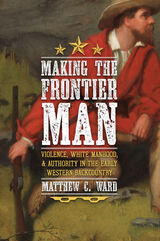
Contextualizes the Development of Early American Violence and Gun Culture
For western colonists in the early American backcountry, disputes often ended in bloodshed and death. Making the Frontier Man examines early life and the origins of lawless behavior in Pennsylvania, Virginia, Kentucky, and Ohio from 1750 to 1815. It provides a key to understanding why the trans-Appalachian West was prone to violent struggles, especially between white men. Traumatic experiences of the Revolution and the Forty Years War legitimized killing as a means of self-defense—of property, reputation, and rights—transferring power from the county courts to the ordinary citizen. Backcountry men waged war against American Indians in state-sponsored militias as they worked to establish farms and seize property in the West. And white neighbors declared war on each other, often taking extreme measures to resolve petty disputes that ended with infamous family feuds.
Making the Frontier Man focuses on these experiences of western expansion and how they influenced American culture and society, specifically the nature of western manhood, which radically transformed in the North American environment. In search of independence and improvement, the new American man was also destitute, frustrated by the economic and political power of his elite counterparts, and undermined by failure. He was aggressive, misogynistic, racist, and violent, and looked to reclaim his dominance and masculinity by any means necessary.

We all remember the famous tagline: better living through chemistry. But in recent years, that promise has been distorted, as serious health effects have been traced to the chemicals in everyday products. When a plastic baby bottle can interfere with brain and reproductive development, you know something is missing.
John Warner is working to fill in the pieces. Starting out as a musician, Warner never thought he would enter the sciences, let alone become a world-renowned chemist. Yet through extraordinary professional and personal experiences, he not only learned to create safe, environmentally-friendly chemicals, but discovered what was broken in the system. From an educational approach that teaches chemistry through rote instruction rather than creative exploration, to business models that short-shrift R&D, society at large is not fostering the development of benign chemicals.
The Missing Elements proposes a path forward, arguing for straightforward changes in education, business, government, philanthropy, and personal behavior that would support the universal adoption of green chemistry. The scale of reform is substantial, but so is the possibility when we restore chemistry’s promise.
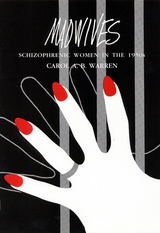
"Opens a window onto the lives of the mentally ill and their families."--Women's Review of Books "Warren's analysis is painstaking and illuminating, and there is plenty of material here to interest those concerned with issues of gender and mental illness."--Times Higher Education Supplement
"The women make the author's major points in riveting fashion, speaking eloquently of enforced dependency and subjugation, the helplessness of rigid and constantly reinforced gender-role boundaries, and outright manipulation by their husbands."--Contemporary Psychology
"Can marriage make women go crazy? Carol Warren addresses this question by emphasizing the connections between gender-sterotypical behavior and the institutionalization of married women in the 1950s, using interviews collected . . . during 1957-61. . . . An interesting sociological reworking of the original pychologically oriented interpretation of the interviews."--Oral History Review
Carol A. B. Warren is a professor of sociology at the University of Kansas and author of The Court of Last Resort: Mental Illness and the Law.
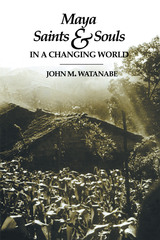
The Maya of Santiago Chimaltenango have experienced increasingly rapid, even violent, integration into Guatemalan society in the last fifty years, yet they still distinguish themselves ethnically from Spanish-speaking Guatemalans and other Maya. Why this sense of ethnic identity persists—and also changes—over time is the focus of Maya Saints and Souls in a Changing World, a beautifully written ethnography of a Mam-speaking Maya town in the western highlands of Guatemala.
John Watanabe uniquely explores how Chimaltecos themselves define their local distinctiveness. This approach uncovers significant continuities in lifeways and world view that might otherwise remain imperceptible to an outsider.
Another important feature of the study is that it updates Charles Wagley's pioneering research in the community during the 1930s. Watanabe identifies both the external, historical factors that have prompted change in the community since Wagley's time and the people's responses to these changes.
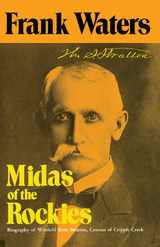
This reprint makes available again Frank Waters’ dramatic and colorful 1937 biography of Winfield Scott Stratton, the man who struck it rich at the foot of Pike’s Peak and turned Cripple Creek into the greatest gold camp on earth. More than regional history, Midas of the Rockies is a story so fabulously impossible and yet so painfully true that it commends itself to the whole of America, the only earth, the only people who could have created it.

In the early 1990s, Mongolia began a transition from socialism to a market democracy. In the process, the country became more than ever dependent on international mining revenue. Nearly thirty years later, many of Mongolia’s poor and rural feel that, rather than share in the prosperity the transition was supposed to spread, they have been forgotten.
Moral Economic Transitions in the Mongolian Borderlands analyzes this period of change from the viewpoint of the rural township of Magtaal on the Chinese border. After the end of socialism, the population of this resource-rich area found itself without employment or state institutions yet surrounded by lush nature and mere kilometers from the voracious Chinese market. A two-tiered resource-extractive political-economic system developed. At the same time as large-scale, formal, legally sanctioned conglomerates arrived to extract oil and other resources, local residents grew increasingly dependent on the Chinese-funded informal, illegal cross-border wildlife trade. More than a story about rampant capitalist extraction in the resource frontier, this book intimately details the complex inner worlds, moral ambiguities, and emergent collective politics constructed by individuals who feel caught in political-economic shifts that are largely outside of their control.
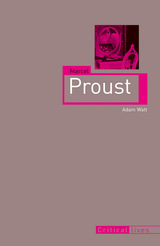
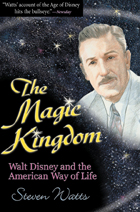
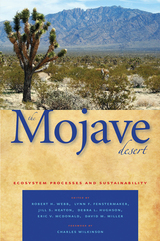
In The Mojave Desert, thirty-eight scientists who are all specialists in desert ecology address the threats to the Mojave, as well as the potential for natural recovery and active restoration. The contributing authors discuss the desert from several perspectives: regional threats such as expanding human populations, climate change, atmospheric nitrogen deposition, and invasive plants; the impact of roads in a desert ecosystem; soils and plant communities; shrinking aquifers; and the monitoring and sustainability of this fragile ecosystem. Finally, they discuss the importance of long-term data and the ways scientists and resource managers can interact to enhance understanding of the processes of change in the Mojave Desert and to advance the preservation and restoration of its precious resources.The Mojave Desert offers the fruits of extensive research in a number of disciplines and a sound assessment of the current state and possible future of one of the world's major deserts. As human intrusion and climate change increasingly threaten the Mojave's ecosystem, studies like this are essential in helping scientists, land managers, and the general public understand what is at risk and what can be done to preserve this austere and hauntingly beautiful region.

Ever since it was made known to English-speaking readers by R. H. Tawney and Tolcott Parsons, the thought of Max Weber has attracted increasing attention among students of sociology, history, economics, jurisprudence, political science, and political philosophy. His far-flung ideas were systematically brought together in his last book, Economy and Society, the major part of which was not published until after his death in 1921. Of this most comprehensive and significant of all of Weber’s writings, only the Introductory Part has so far been available in English.
The present book contains an English translation of those parts of Economy and Society in which Weber investigates the relationship between the social phenomenon “law” and the other spheres of social life, especially the economic and the political. The translation, by Edward A. Shils and Max Rheinstein, is accompanied by an extensive introduction and explanatory and bibliographical notes by Max Rheinstein. The Introduction will acquaint the reader with the problems of sociology of law in general and with Weber’s approach and methods in particular. The notes are meant to help the reader understand Weber’s wide-ranging references to institutions of Western and Oriental systems of law of both past and present; they also contain references to the sources used by Weber and to later literature which will help the reader evaluate Weber’s statements and conclusions.
Max Weber’s main problem was to discover the causes of the rise of modern capitalism. In his discussions of the law he is primarily concerned with finding what features of Western law, if any, were favorable to the development of the capitalistic economy and in what ways this economy has reacted upon methods of legal thought. Is logical rationality, peculiar to certain parts of the Western world, connected with that rational method of economic thought which is characteristic of Western capitalism? His concern with methods of legal thought renders Weber’s ideas specially significant for present American and English jurisprudence.
Among the other problems he discusses are those of freedom of contract, its origins, its rise and its place among the institutions of capitalist and non-capitalist societies; the development of rational processes of law making; the connections between kinds of legal thought and the types of social functionaries by whom law is shaped in a given society; the social factors favoring or counteracting codification; and the economic and political significance of ideas of natural law.

READERS
Browse our collection.
PUBLISHERS
See BiblioVault's publisher services.
STUDENT SERVICES
Files for college accessibility offices.
UChicago Accessibility Resources
home | accessibility | search | about | contact us
BiblioVault ® 2001 - 2024
The University of Chicago Press


